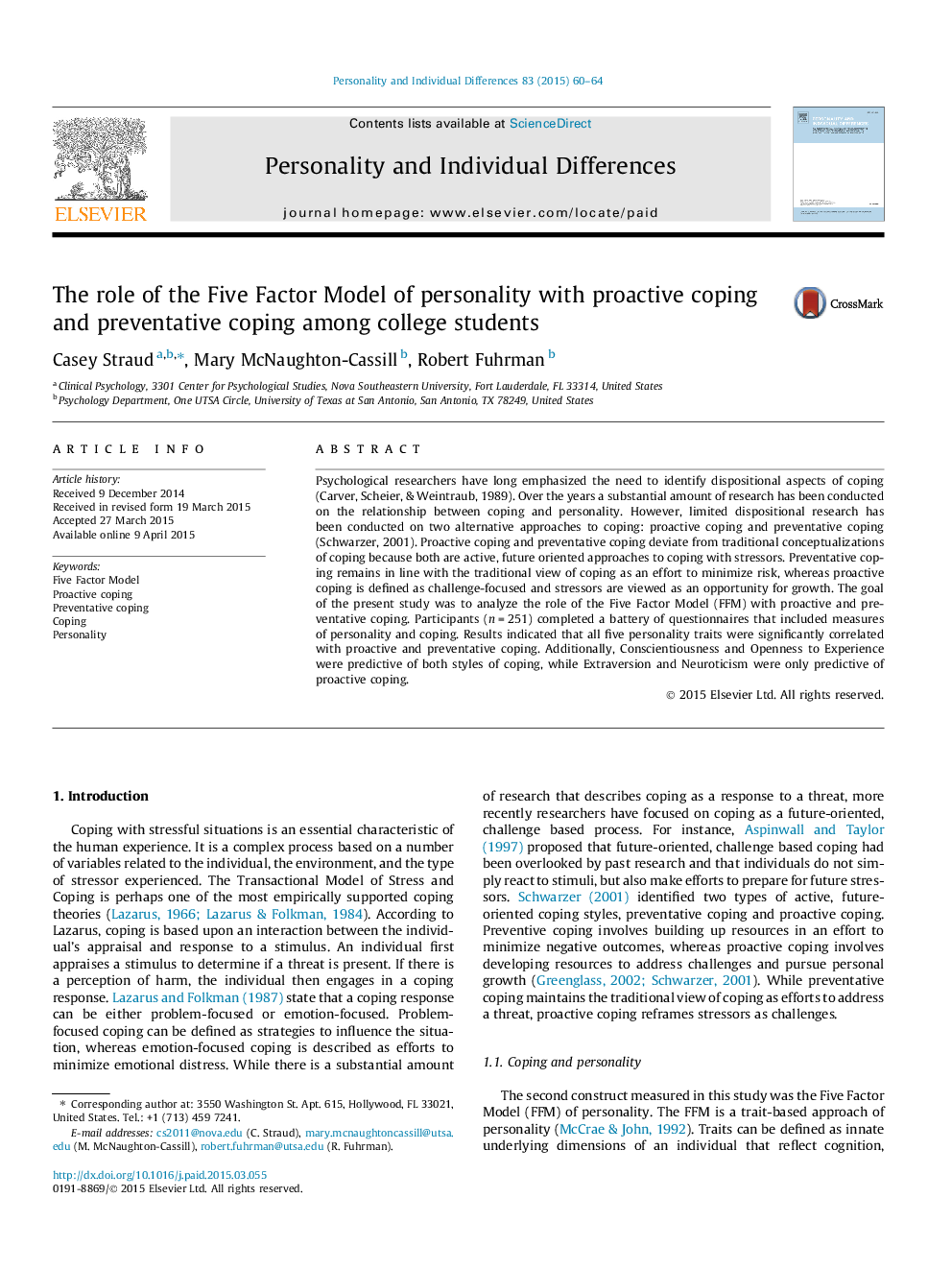| کد مقاله | کد نشریه | سال انتشار | مقاله انگلیسی | نسخه تمام متن |
|---|---|---|---|---|
| 890133 | 1472035 | 2015 | 5 صفحه PDF | دانلود رایگان |
• Results demonstrated significant relationships between personality and coping.
• Conscientiousness and Openness predicted proactive coping and preventative coping.
• Extraversion and Neuroticism were only predictive of proactive coping.
• The Big Five was more predictive of proactive coping than preventative coping.
Psychological researchers have long emphasized the need to identify dispositional aspects of coping (Carver, Scheier, & Weintraub, 1989). Over the years a substantial amount of research has been conducted on the relationship between coping and personality. However, limited dispositional research has been conducted on two alternative approaches to coping: proactive coping and preventative coping (Schwarzer, 2001). Proactive coping and preventative coping deviate from traditional conceptualizations of coping because both are active, future oriented approaches to coping with stressors. Preventative coping remains in line with the traditional view of coping as an effort to minimize risk, whereas proactive coping is defined as challenge-focused and stressors are viewed as an opportunity for growth. The goal of the present study was to analyze the role of the Five Factor Model (FFM) with proactive and preventative coping. Participants (n = 251) completed a battery of questionnaires that included measures of personality and coping. Results indicated that all five personality traits were significantly correlated with proactive and preventative coping. Additionally, Conscientiousness and Openness to Experience were predictive of both styles of coping, while Extraversion and Neuroticism were only predictive of proactive coping.
Journal: Personality and Individual Differences - Volume 83, September 2015, Pages 60–64
